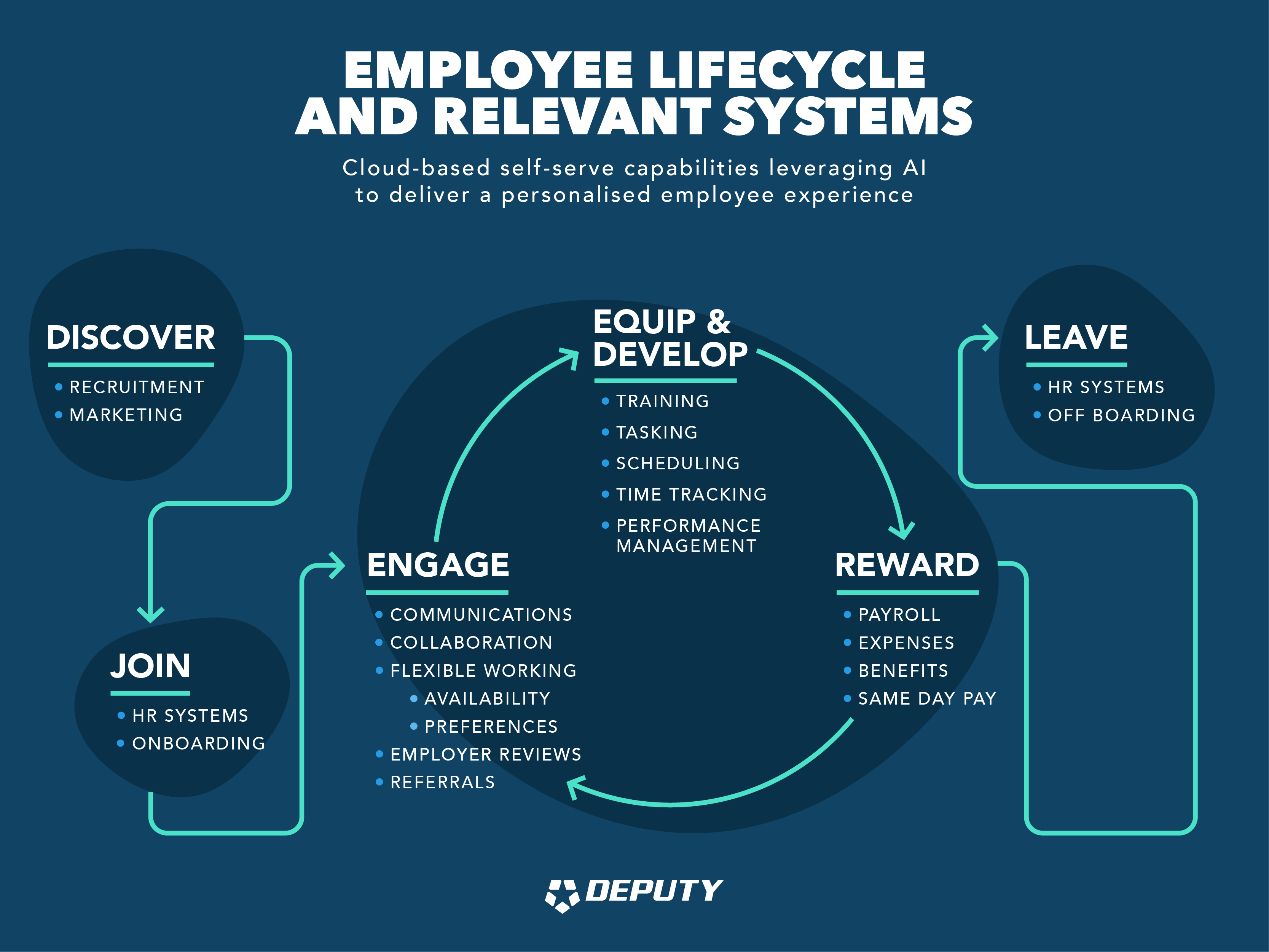Why HR technology can improve how you manage your people
With remote working playing a key role for businesses due to the impact of coronavirus (COVID-19), cloud-based applications for managing people can help companies work efficiently. Learn how cloud-based HR technology can make a real impact for your business, and discover why now is a great time to invest in it. Making work better What […]

With remote working playing a key role for businesses due to the impact of coronavirus (COVID-19), cloud-based applications for managing people can help companies work efficiently.
Learn how cloud-based HR technology can make a real impact for your business, and discover why now is a great time to invest in it.
Making work better
What is HR technology? Put simply, it’s any tool that improves the employee-employer relationship, makes people’s working lives better, or reduces admin and overhead for organisations.
Not to mention the all-important P word: Productivity.
For example, it could be a training app, payroll software, a shift-scheduling app, a performance management package or a recruiting platform that makes it easier to find people and bring them on board.
The list of what HR tech can do is long and growing. Venture firms invested more than £4bn in it during 2019. It’s a hot sector.
Technology for everyone
The reason why HR tech is attracting so much attention is convergence.
The coming together of mobile apps, cloud, connectivity and data science means powerful people-focused software can now reach everywhere.
Not just into businesses that don’t want or can’t afford heavyweight on-premise software systems but also into the hands of any employee with a mobile device.
Which, these days, is pretty much every employee.
It’s also worth bearing in mind that many employees, especially shift workers, often feel unloved and under-informed, so there’s a huge opportunity for HR tech to deal with this issue.
Today, even the very smallest businesses are able to replace manual spreadsheets and paper-based systems with state-of-the-art, app-based tech. For complex tasks such as scheduling shift workers, it can turn hours of work into minutes or even seconds.
Affordable, efficient, fast
So that’s three reasons for investing in HR tech right there: it’s affordable, there’s something for everyone (not just knowledge workers in ivory towers), and it can cut out masses of admin.
Whether you run a pub, a chain of stores or an engineering consultancy, HR tech can help. And because it’s cloud-based, app-driven and no longer needs a frighteningly expensive IT project to get it off the ground, you can start straight away.
With businesses working to get back on their feet post-lockdown, it’s also the kind of investment that could help you get back up to speed more efficiently.
But where to start?
To answer the question of why you should invest in HR tech at all, the best approach is not to focus on either HR or technology. Instead, it’s helpful to start by exploring how, exactly, these new platforms and apps could help your business.
Three ways to think about HR technology
1. Customer experience
What do you want your customer experience to be? Everything flows from this question, because your ideal customer experience depends on the people that deliver it.
HR tech has great potential to improve employees’ lives so they are better placed to provide the service you need.
How are their day-to-day working lives and career paths structured? How do you communicate with them? Do they need training and development?
Do you just need some basic technology that shows you who’s on shift and how they’re getting paid, or do you need something more sophisticated that helps build a certain type of culture?
Starting with customer and employee experience is a great way to start to narrow down the type of technology you need.
2. Skills and skills gaps
Every organisation has top performers. HR tech has the potential to help you understand what’s driving this performance so you can replicate it.
If you know whether it’s team dynamics, specific skills or just individual behaviour that’s behind a successful result, you can find and fill any gaps.
Also, it’s important to bear in mind that many skills – especially those that are valuable in service businesses – are not visible on people’s CVs.
Think of the best (or worst) bosses you’ve ever had. Did their bios say anything about what made them like that?
If your customer experience depends on people having empathy, emotional intelligence or a good ability to listen, your recruitment, training and development – and the technology you use to support it – should help you to focus on these skills.

3. Employee lifecycle
Is there a particular part of the employee lifecycle where you need more support? There’s HR tech to support every stage, from getting hired to getting paid:
- Recruitment
- Onboarding
- Training and development
- Scheduling and task management
- Team communication
- Performance management
- Learning management
- Payroll
- Expenses
- HR analytics
Looking at HR tech through this lens helps you decide where to focus your investment.
Why the time is now
Traditionally, technology investments have been costly and fraught with risk. It’s typical for businesses to put them in the box marked ‘difficult’, which can mean decisions get delayed or put off indefinitely. Especially at times of great uncertainty.
But today, if you’re looking to run a modern business successfully, you’ll want it to be as cloud-based and app-driven as possible.
With people working remotely now and perhaps more so in the future too, cloud means your people can be efficient anywhere.
This model is also orders of magnitude more efficient and affordable than legacy on-premise technology. And for fast-expanding businesses, it scales easily, so rapid growth isn’t accompanied by escalating costs.
Whether you’re starting out, in growth mode, looking to upgrade existing systems or preparing to start up again post-lockdown, investing in HR technology can help you save time, run more efficiently and improve how you manage your people.
Editor’s note: This article was first published in April 2020 and has been updated for relevance.
Remote working: A guide for employers
Learn how you can build an engaged remote workforce and overcome challenges with the help of cloud HR software.






